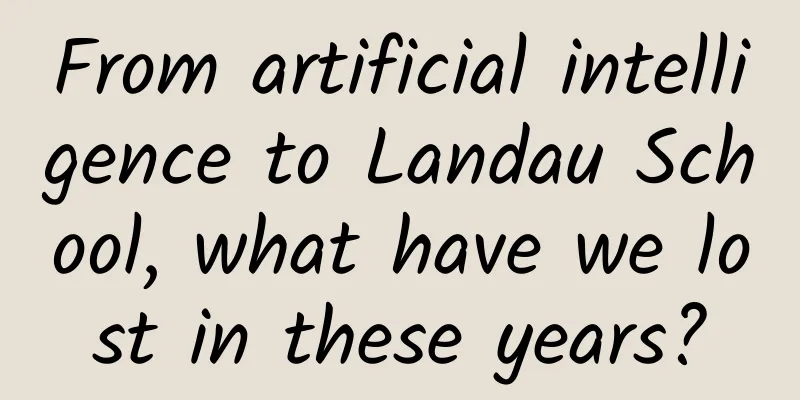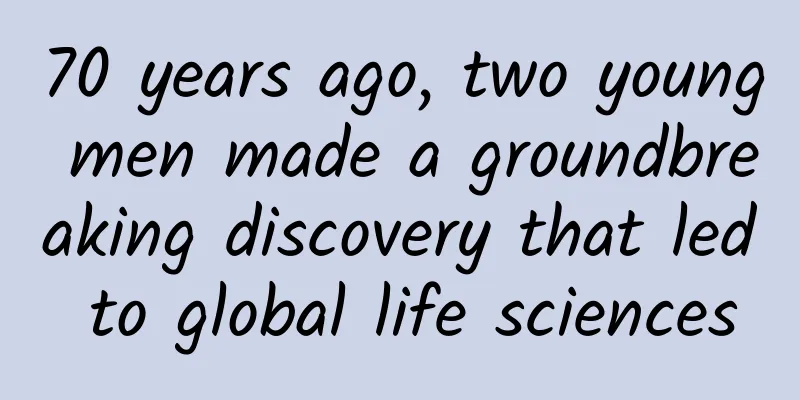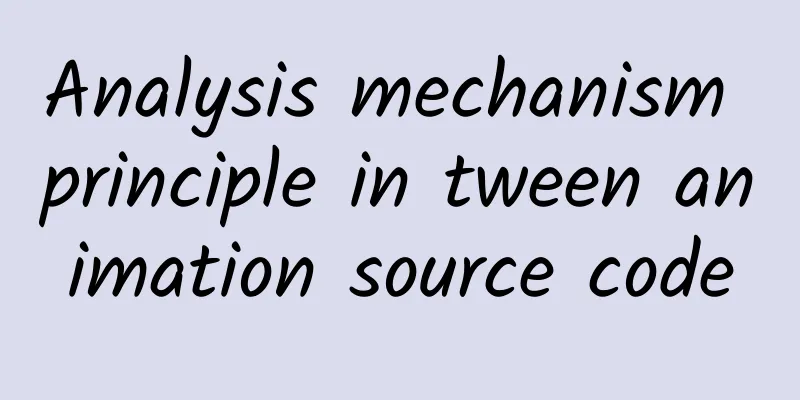From artificial intelligence to Landau School, what have we lost in these years?

|
From artificial intelligence to Landau School, what have we lost in these years? Story 1: How the Godfather of Artificial Intelligence Was Trained The 2018 Turing Award, the highest international award in computer science, was awarded to Geoffrey Hinton, Yann LeCun, and Yoshua Bengio in recognition of their outstanding contributions in the field of "deep learning." Yann LeCun worked as a postdoctoral fellow under Hinton after graduating from his doctorate, while Yoshua Bengio was Yann LeCun's subordinate when he later worked at AT&T. Geoffrey Hinton was born on December 6, 1947 in Wimbledon, England. He received a bachelor's degree in experimental psychology from Cambridge University in 1970. At the age of 25, he began his doctoral studies and received a doctorate in artificial intelligence from the University of Edinburgh in 1978. Since then, he has firmly believed that artificial neural networks are an effective way to achieve artificial intelligence. In the nearly 40 years since he entered this field, artificial intelligence has been hot and cold, and artificial neural networks have been relegated to the cold palace since the 1990s. There is almost no funding in the world to support research in this direction. But Hinton never backed down. From the UK to the United States and then to Canada, he avoided other interference as much as possible and worked without distraction from his youth to his sixties. Finally, with the help of computer "brute force computing", the 65-year-old led his students to win the third ImageNet Large Scale Visual Recognition Challenge in 2012, making the "deep learning" neural network famous all over the world. They were the only contestants in all previous competitions who used the "deep learning" artificial neural network technology. Artificial intelligence was fully revived after a long winter of about 20 years. He was also hailed as the "godfather of artificial intelligence". Figure 1 2018 Turing Award winners, the three giants of "deep learning": Jeffrey Hinton, Yoshua Bengio, Yann LeCun (from right to left) After they won the award, Bloomberg Businessweek produced a short video for Geoffrey Hinton. In the video, the host curiously asked him: "What do you think is in your heart that makes you persist and believe that this is the right direction when others are not optimistic and give up?" He answered very quickly: "I know that everyone else is wrong." His answer was brief and concise, perhaps because it was difficult to express in words his lifelong persistence. If he didn't succeed in the end, would he regret it? For him, this question may not even exist, it belongs only to the questioner himself. What kind of mental journey did he go through to spend his whole life doing one thing, and in the second half of it, it was something that his peers didn't think was promising? If he could live his life again, would he still be so resolute and move forward? Regardless of our opinions or questions about what he did, he used his lifelong persistence to open up a new situation for artificial intelligence, which deserves our respect. Story 2: Landau and the Landau School There is a rule that the Nobel Prize cannot be awarded to scholars who have passed away. On January 7, 1962, on the road from Moscow to the Dubna Institute for Nuclear Research, a car collided head-on with a truck coming from the opposite direction. Soviet physicist Lev Davidovich Landau was seriously injured and his life was hanging by a thread. Landau was born in Baku, Russia on January 22, 1908. He was 54 years old when he was injured. Perhaps out of some concern, 10 months later the Royal Swedish Academy of Sciences decided to award that year's Nobel Prize in Physics to Landau in recognition of his outstanding contributions to the field of condensed matter more than 20 years ago, especially his pioneering theory of superfluid liquid helium. Because Landau was seriously injured, the award ceremony was held in another place as an exception. On December 10, 1962, at the Soviet Academy of Sciences Hospital, Landau accepted the medal and certificate from the Swedish ambassador to the Soviet Union on behalf of the King of Sweden. This happened at a time when the Soviet Union and the West were in full-scale confrontation. Winning the award in this way was enough to demonstrate Landau's top position in the international physics community at the time. Six years later, Landau died young at the age of 60. Figure 2: Landau accepting the Nobel Prize in Physics at the Hospital of the USSR Academy of Sciences in December 1962 In the 20th century, the Soviet physics community played an important role in the world, especially in the field of theoretical physics. During the heyday of the Soviet physics community, the American Physical Society organized a special team to translate the full text of Russian physics academic journals and translated a large number of Russian physics monographs. This vividly reflects the creativity and international prominence of the Soviet physics community at that time. Landau is known as the greatest physicist in the Soviet Union. To this day, people still often regard Landau and the Landau School as the representative or even synonym of the Soviet physics community in the 20th century. I heard of Landau's name when I was in college. Not long ago, after reading the materials that introduced his life in detail, Landau brought a huge impact to my heart. This impact was not his academic achievements as the "last all-round physicist", nor the "Landau barrier" that people talked about with great relish - the minimum standard test of theoretical physics designed by Landau, nor the "Landau Ten Volumes" "Theoretical Physics Course" that was regarded as a classic internationally and was finally completed by him, his assistants and students over 40 years, but the physics seminars he personally organized. Probably since the mid-1930s (I didn't find out the exact time), Landau's physics seminars started on time every Thursday morning at 11 o'clock. The seminars continued uninterrupted for more than 20 years until he was seriously injured in a car accident. His seminars were open to everyone who was interested. His student, the famous physicist Boris L. Ioffe, recalled in his later years: "After each seminar, Landau would take out the latest issue of Physical Review. Review, which was not yet divided into volumes, and told the next speaker which papers he should report in the seminar. Generally speaking, he would select a dozen such papers from various branches of physics, mostly experimental papers, or one part theory and the other part experiment. Sometimes there were also short theoretical papers, such as letters to the editor, etc. The speaker had to review not only the basic ideas and final results of the paper, but also understand what the results were, explain to the audience all the necessary formulas, including experimental techniques, and have his own opinion on whether the results were reliable, etc. In short, the speaker had the same responsibility for the paper he reported (and the errors in it) as if he were the author. As I said before, the topics of these papers were very diverse - from particle and nuclear physics to the properties of metals and liquids. He knew all the topics very well (although he seemed to hardly read the papers, just listened to their reports), and would ask questions that had to be answered immediately and clearly, and would not accept general statements such as "the author claims that...". There were always some experts in the audience, who would also ask questions and speak. Therefore, giving such a presentation was a difficult task (fortunately, it only happened once or twice a year per person). Sometimes, when Landau was not satisfied with the presentation of a paper, he would ask the presenter to stop and let him/her go on to the next one. If this happened two or three times in a presentation, Landau would say: 'You are not prepared! Who is the next speaker?' ...... The presentations were conducted in different ways. If one wanted to present a theoretical study (one's own or one taken from the literature) at the seminar, he should first explain it to Landau privately. If Landau agreed with the basic content, he could speak at the seminar. At the seminar, Landau would give a clear assessment, and his interpretation of the article often differed greatly from that of the author. A heated discussion would then ensue. Landau would say: 'In fact, the author did not understand what he had done.' Landau's understanding in all cases was very original, and it was not easy for ordinary people to follow his reasoning. For me (and certainly not only me), it took hours (sometimes days) to understand how profound his insights were, which often led to turning the problem over and looking at it from a different perspective. The presentations freed the presenter from the Physical Review article; therefore, presentations at Landau seminars were an important form of motivation (for example, Pomeranchuk never gave reviews, because he always gave theory talks). Sometimes, outsiders who were not members of the Landau school also gave theory talks. In fact, no foreign physicists visited Moscow until 1955. So, what I call outside scholars are the theorists from the International Federation of Mathematicians (FIAN), the Institute of Mathematics and Moscow University (NN Bogolyubov, IM Gelfand), as well as Leningrad and Kharkov. "Seeing these memories, while being amazed at Landau's deep understanding of different branches of physics and his keen insight into various cutting-edge research, I am even more amazed at Landau's focus and dedication to the content of the weekly seminars for more than 20 years. This seminar is obviously not mainly for Landau's own academic research, but for the training of young people. Without these 20 years of weekly seminars, which totaled about a thousand times, there might not be the "Landau School", and the glory of the Soviet physics community at that time might have been greatly reduced. What kind of inner strength made Landau, who was proud of the global physics community, so persistent and painstaking in training future generations? His child prodigy-level IQ is obviously not the answer. If he hadn't been seriously injured and died early in the car accident, his physics seminars might have continued for nearly 20 years? How many more outstanding physicists could he have trained? The first two of the three winners of the 2003 Nobel Prize in Physics, Alexei Abrikosov and Vitaly Ginzburg, were once Landau's students. The confusion of reality Hinton and Landau lived and worked in two completely different social environments, but they showed the same qualities that make them great world-class scholars: for a pure goal, they were detached from the world, persevered and devoted their entire lives to it. Great people have a huge and widespread influence through their own contributions and leading by example, which is an important force in promoting the progress of human civilization. We have had many such role models in history, many widely circulated legends and stories that demonstrate this spirit, and words that praise this spirit. Once upon a time, the famous poem "Foolish Old Man Who Moved Mountains" was well-known to everyone, and almost all schoolchildren in China had recited it. Figure 3: Yugong Moves Mountains by Xu Beihong Although the miracle of the high-speed rail seems like yesterday, the atmosphere around us has changed quietly without us noticing. When the legends of Yugong moving mountains and Jingwei filling the sea were lost in the clamor of various secrets of success, the phenomenon of people denouncing the superficiality and impetuousness of society and the pursuit of quick success and instant benefits with impassioned and righteous words, while their minds were trying their best to find shortcuts to success and fearing to miss any window of speculation, was no longer an occasional sight or contempt. It had actually become a way of life that was taken for granted and penetrated into every corner and class of society, and even deeply colored the intellectual world that should have led social progress. Being single-minded and not being moved by the trend became a stubborn and stupid thing that was laughed at by everyone. The question that the Bloomberg News reporter asked Hinton really hit the nail on the head. The power that can make a person fight for his whole life can only come from the depths of his soul. It is a clear wisdom that can penetrate the fog and guide the direction of life. I believe that although people don’t have to be extraordinary in their lives, they should always have some promises in their hearts, even if it’s just one, that are indeed beyond the individual, beyond utilitarianism, without preconditions, unchangeable, regardless of the cost, and must be fulfilled. That is a person’s promise to his own soul. The biggest failure in life is probably to end up living like what your conscience hates or even despises when you were young. This is a serious social personality split. What have we lost over the years? Heaven moves forward, and a gentleman should constantly strive to improve himself. |
<<: How to take good care of the elderly at home in autumn?
>>: Rumor online: "It's OK to eat snakes"? Official response!
Recommend
How to build a live broadcast operation system from scratch?
I believe that friends in the To B circle should ...
Hunter Camp - Ni Yeming "Official Account SEO Money-Making Special Training Course" WeChat Search Ranking Optimization
Hunter Camp - Ni Yeming's "Special Train...
Bee: I love to pick the sweetest wildflowers on the roadside.
I am Dong Dong Meow Talking animals are so fun! T...
Don't panic! Smart hardware companies still have a chance to take advantage of the capital winter
After the stock market crash in the second half o...
What is carrageenan and what role does it play in ice cream?
Recently, "ice cream assassin" has beco...
E-commerce live streaming practical process summary
The market is very good, but you need to be cauti...
It's not just about launching a new LOGO. Why is Alibaba Cloud trying so hard to accelerate its internationalization?
A few years ago, an analyst predicted that "...
"I always thought it was influenza A!" A woman had a fever for 2 weeks and was diagnosed with acute leukemia! These symptoms should not be taken lightly
"I always thought I had influenza A. Fortuna...
APICloud builds an ecosystem to accelerate mobile development
APICloud 2015 product launch conference was succe...
Is it possible to start a business with 0 cost? 5 zero-cost side hustle projects! Each one is regular and long-lasting
Is it possible to start a business with 0 cost? S...
How to attract 600 million low-end users?
In 2019, the concept of sinking markets was extre...
Why do programmers like to work at night?
Some people say that programmers are a kind of ma...
8 Keys for Startups to Find the Best Investors
In the past two years, the relationship between e...
Will the 2022 Beijing epidemic end by the end of May? How many days has it been since the epidemic was cleared? Attached is the estimated time for complete zeroing
Since the current round of epidemic broke out in ...









